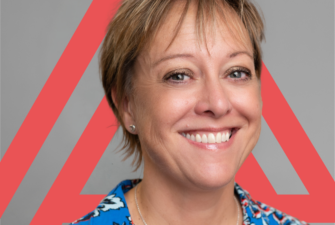
Raising awareness and improving performance
According to the Organisation for Economic Co-operation and Development (OECD), poor management costs employers around £84 billion a year. Whilst the cost of replacing a highly skilled executive can be 213% of their actual salary.
Using a good reliable psychometric assessment and executive coaching can significantly raise self-awareness and improve performance as well as improving your bottom line.
We frequently use the MTQ assessment and research shows that those people who have higher levels of mental toughness with good levels of awareness can be up to 25% more productive.
A client had appointed a new Director, let’s call her Sue, six months before approaching us. At first, everything was going well. Then, after three months, cracks started appearing. Sickness absence rates amongst her staff increased. As did complaints about her behaviour and leadership style. Directorate performance began to drop too. The director herself began to experience stress-related issues, feelings of burnout and was on the point of resigning.
The executive team were concerned over the this decline so they contacted ARK and engaged with executive coaching. Our approach was first assessing her mental toughness, through the MTQ plus. It’s an assessment we use in all our coaching assignments, as it is a reliable psychometric that enables us to evidence measurable impact. It measures a part of our personality called mental toughness. This explains how we think when exposed to stress, pressure, challenges, and opportunities. How we think or respond mentally doesn’t change in differing contexts. We react mentally to stress the same way at home, as we would at the office. This then influences our behaviour, which is the part we can adapt in different circumstances.
This was her profile:

We could see straight away that she was very high across the board which gave us some useful insights.
The MTQ assessments are normative assessments. The scores you receive are standardised which means they have been taken from a population where everyone can be compared. It is only when we compare ourselves to somebody else who has done the same assessment that it becomes meaningful. The MTQ plus compares your results to those adults of general working age.
Sue scored in the top 16% across the assessment, so you could say she thinks like only 16% percent of the working population. How likely is it that her team all sit within the same percentile?
It’s important to note that being mentally tough isn’t better than being mentally sensitive: there’s strengths and weaknesses at both ends. People who are more mentally tough deal better with stress and pressure, however that doesn’t mean that they are better overall. For example, having a high level of mental toughness with no self-awareness can be problematic, especially in our hybrid working world where our leaders and managers determine our company culture like never before.
From talking to Sue, it became apparent her low self-awareness meant she was driving the team too hard, with unrealistic expectations. She had a command-and-control leadership style and was hard to read. She set challenging targets and demanded achievement. The end justified the means.
Her high levels of challenge meant she was willing to take risks and instigate too many new ways of working. However, not giving them time to embed and really bring the team on board was having a detrimental effect. Her confidence levels meant Sue came across as overpowering and confrontational, so her team didn’t feel they were able to approach her and share their thoughts and ideas. She was creating a high-friction culture at odds to the prevailing one, and she was completely unaware she might be creating the problem.
The assessment allows us to encourage greater self-awareness. Just by highlighting to Sue that it was highly likely that she didn’t think like any of her team, it allowed her to understand things from multiple perspectives. It freed her up from her previous assumptions and biases and enabled her to focus on building better relationships.
Through coaching we were able to focus on her goals. Comparing her mental approach to her team, she was able to choose to dial down her high levels and explore different strategies to get the results she wanted while bringing the team onboard. Within a few coaching sessions, things began to improve. Sue’s stress levels were reducing; team collaboration and performance began to improve. Six months on and Sue was still with the organisation and all other symptoms had improved.
Poor management and leadership is expensive. A recent Gallup poll of more than one million workers concluded that the number one reason people quit their jobs is a bad boss, or immediate supervisor.
As an example, in Sue’s case we calculated the potential cost of no intervention:
Risk | Estimate |
Sue's Annual Salary | £80,000 |
Recruitment Fees | £17,600 |
Poor/slow transition and conflict = 15% impact on team costs of £270,000 (loss of productivity, sickness absence etc, increased HR support) | £40,500 |
Team attrition of 20% | £54,000 |
Cost of losing Sue. Could be up to 300% of salary. (We calculated 150% which is includes cost of new recruitment, advertising, interim placement, wellbeing risk to the team and additional support and training) | £120,000 |
Total financial Risk | £312,100 |
Do you want your teams to be happier, your leaders to have more influence, be better decision-makers, and be more effective? Self-awareness, then, is the most important muscle they can develop.
It’s what keeps you on target to be the best version of yourself and the best leader you can be.
Executive coaching can be the key to unlocking those personal insights. Contact the highly experienced team at ARK to learn more about our coaching offer and psychometric assessments.
News & Insights
Read the latest housing sector news, blogs, and commentary from ARK.

Kirsty Wells to join the team as Assistant Director
By Helen Scurr ·We are excited to announce a senior figure in the social housing sector will be joining our consultancy team. Kirsty …

Building Safety
By Luke Beard ·The deadline for registering an existing higher risk building (HRB) with the regulator and submitting the required key building information …

Are you ready for the Supported Housing (Regulatory Oversight) Act 2023?
By Nick Sedgwick ·If you are a supported housing provider, you need to be aware of the new regulations that are about to …
Subscribe to our newsletters for the latest industry insights
Our newsletters and reports will keep you updated on topical issues from the sector as well as what’s happening at ARK.
